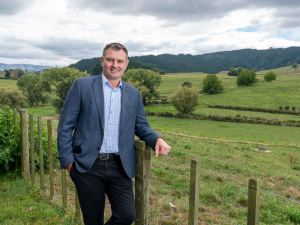The low unemployment environment is one of the key factors driving on-farm salaries higher over the past 24 months, says Rabobank general manager for country banking Bruce Weir.
“Many farm owners have found it incredibly difficult to source skilled labour over recent years, and this has played a key role in lifting wages as employers have had to pay more to attract and maintain good staff,” he says.
Another major driver of salary growth – particularly for the dairy sector which has a greater reliance on overseas workers – was the Accredited Employer Work Visa (AEWV), he points out.
“Introduced in mid- 2022, the AEWV requires employers to pay at least the median wage to international workers as a condition of the visa, and this has lifted pay for international workers higher,” Weir says.
“This in turn has led to increased pay for domestic workers as employers have increased salaries for this group to ensure pay-parity with their international counterparts.”
Weir made the comments after a new report showed farm employers across the dairy, sheep and beef, and arable sectors have continued to invest strongly in one of their greatest assets – their staff.
The 2024 Federated Farmers-Rabobank Farming Salaries Report shows that since the last report in 2022, the average salary for a farm worker has increased by $7,480 to $71,411 and the weighted average annual salary across the 13 surveyed on-farm position categories has grown by 13%.
“For some more senior roles, the increases have been significantly higher,” Federated Farmers national board member and employment spokesperson Richard McIntyre says.
For example, the average salary for a dairy herd manager is up 19% to $74,185. A sheep/beef farm manager is earning an average 22% more than two years ago ($88,381) and the average income for an arable farm manager is up 28% to $101,264.
McIntyre says the increases are impressive, especially in light of all the headwinds farmers have contended with over the past two years, which have included Covid, severe weather events, production-suffocating red tape, inflation and roller-coaster commodity prices.
“And these upwards salary movements underline that careers in agriculture are not only satisfying, but also pay-competitive,” he says.
Weir adds that while growth in on-farm salaries increased costs for farm owners, it was crucial to help attract young people into agricultural careers.
“Alongside our client councils, Rabobank is involved in a number of activities that focus on highlighting to secondary school students the array of career opportunities available across the agri sector,” he says.
“We know that remuneration is a key consideration for this group when they’re thinking about career pathways and, if we want to attract good young people into the sector, it’s vitally important that growth in salaries for on-farm roles keeps pace with, or exceeds, what is happening across the wider employment market.
“Statistics NZ data tells us that Labour Cost Index wage growth across all New Zealand sectors in the 24 months to December 31 last year was around 11 per cent, so it’s good to see salaries for most of the surveyed on-farm positions growing at this rate or quicker over the same period.”



















